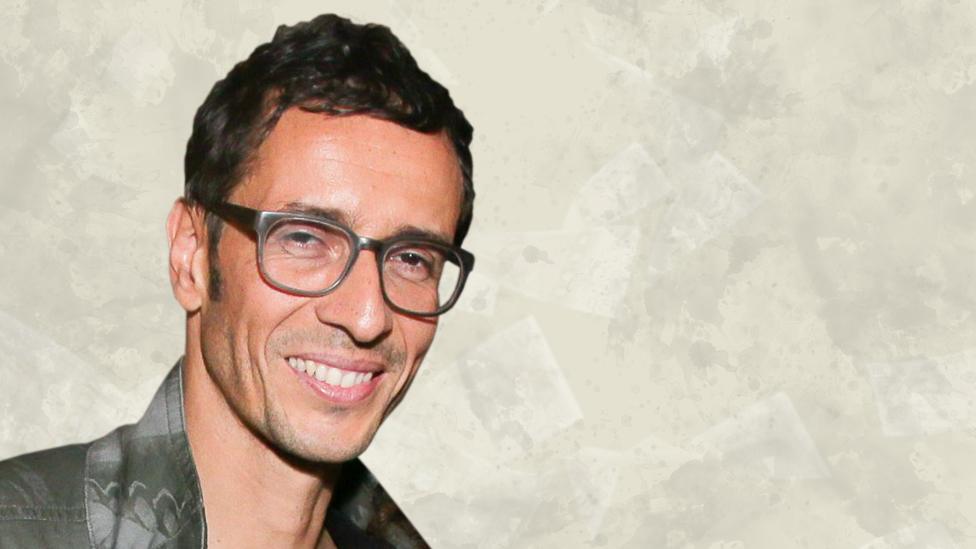Angola's Isabel dos Santos: Africa's richest woman eyes presidency
- Published
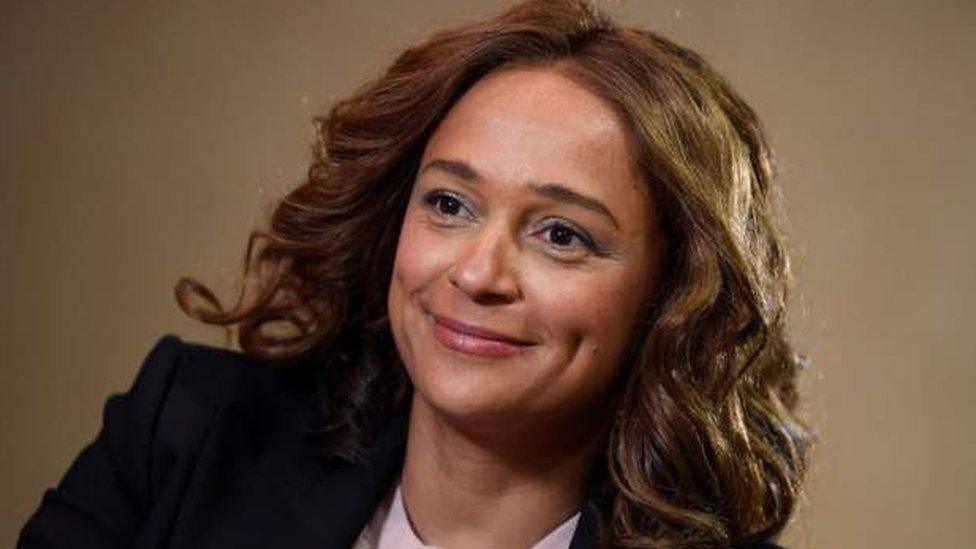
Isabel dos Santos is one of the wealthiest women in the world
Angolan billionaire Isabel dos Santos, who is embroiled in a huge financial scandal, has suggested that she may seek to become the country's president.
In a BBC interview, Ms Dos Santos pointedly declined four times to rule out running for the presidency.
Her father José Eduardo dos Santos ruled Angola for 38 years. Prosecutors are seeking to recover $1bn (£760m) Ms Dos Santos and her associates are alleged to owe the state.
She has denied any wrongdoing.
Ms Dos Santos, 46, is one of the world's richest women, with Forbes magazine estimating her fortune to be worth $2.2bn, making her the richest woman in Africa.
Her father controversially appointed her as the head of Angola's state-owned oil firm Sonangol in 2016.
She was sacked from the post in 2017 by President Joao Lourenço, her father's handpicked successor.
What did she say?
In an interview in London, she repeatedly stressed that her life was at risk if she returned to Angola in the current circumstances.
Refusing to rule out the possibility of running for president, she said she had a strong sense of patriotism and duty to her country.
"To lead is to serve, so I will do whatever my life takes me," she said.
Ms Dos Santos later told a Portuguese television channel that "it's possible" she might run for the presidency in 2022.
The announcement marks a dramatic shift for a woman who has consistently portrayed herself as an entrepreneur with no interest in politics.
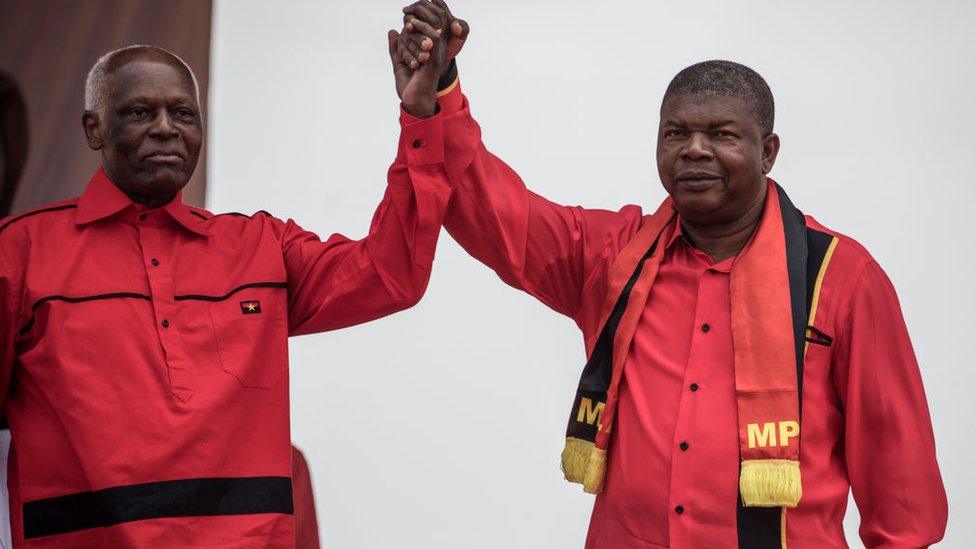
José Eduardo dos Santos (l) handed power to Joao Lourenço in 2017
A court in the Angolan capital, Luanda, last month ordered the freezing of her bank accounts and of her vast business empire in the oil-rich country, following a string of investigations into alleged corruption by the Dos Santos family which prosecutors say has robbed the state of more than $2bn.
"These are false allegations and this is part of… an orchestrated attack by the current government that is completely politically motivated," she said.
Her half-brother, José Filomeno dos Santos, is on trial in Angola on charges of corruption.
The prosecution alleges that he and his co-accused helped spirit $500m out of the country during his time as head of Angola's Sovereign Wealth Fund. They have pleaded not guilty.

Who is Isabel dos Santos?

Eldest daughter of ex-President Jose Eduardo dos Santos
Married to Congolese art collector and businessman Sindika Dokolo
Attended all-girls boarding school in England
Studied electrical engineering at London's prestigious King's College
As 24-year-old acquired a stake in Miami Beach, a chic bar and restaurant in Luanda
Rose to become Africa's first female billionaire
Made head of state-owned oil firm Sonangol in 2016, removed in 2017
Has a stake of about 6% in Portuguese oil and gas firm Galp, worth around $830m
Owns 42.5% of Portugal's Eurobic bank
Has 25% stake in Angolan mobile telecom firm Unitel
Has 42.5% stake in Angolan bank, known as Banco BIC
Source: Forbes magazine and others

What has changed in Angola?
Ms Dos Santos repeatedly lashed out at President Lourenço, who succeeded her father two years ago as president.
Despite coming from the same party, the MPLA, he has since stunned many Angolans by appearing to target the Dos Santos family as part of a broader anti-corruption drive.
"President Lourenço is fighting for absolute power. There's a strong wish to neutralise any influence that [former] President Dos Santos might still have in the MPLA," Ms Dos Santos said.
"If a different candidate would appear [ahead of the 2022 presidential election] supported by former President Dos Santos or allies linked to him, that would really challenge [Mr Lourenço's] position because his current track record is very, very poor," she added, citing rising unemployment, a stagnant economy and a wave of strikes.
But the allegations of corruption aimed at Ms Dos Santos and her half-brother have been given new weight by the criminal investigations launched against her in Angola.
"The reality is that there is more than enough evidence against her. She's a key figure in the Dos Santos family and a credible threat to Lourenço," said Darias Jonker, a regional analyst for the Eurasia Group, who said that legitimate allegations of corruption were being wielded by the state as part of a vicious power struggle within the MPLA.
"Lourenço is sending a signal that there's a new sheriff in town, with new rules," Mr Jonker added.
"He needs his own patronage network, but his model is much more modest - he won't allow the multi-billion-dollar patronage deals that were a hallmark of the Dos Santos era. Would Isabel support some sort of palace coup? I think it's something she'd certainly consider."
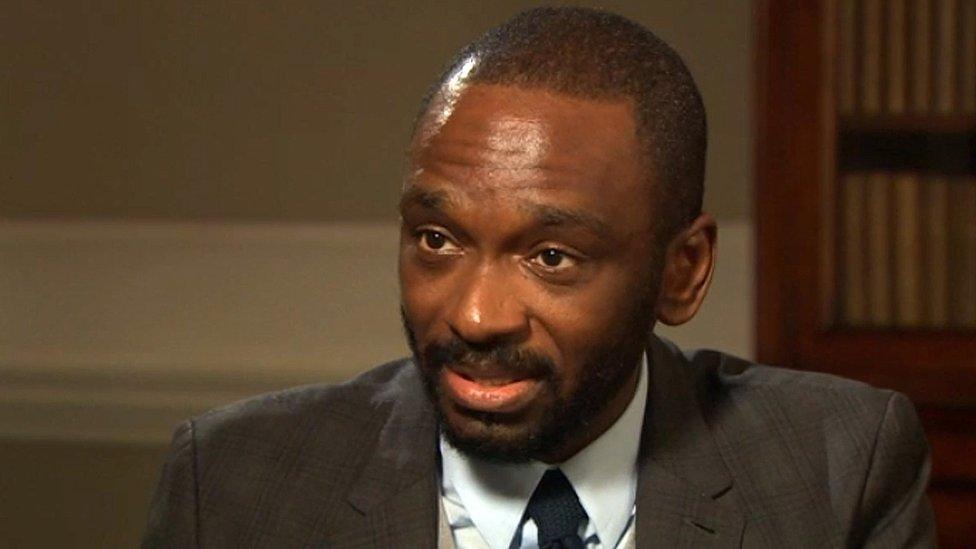
José Filomeno dos Santos is on trial for corruption
Ms Dos Santos insisted she was being used as a "scapegoat" by President Lourenço, and lashed out at the justice system in Angola, accusing the attorney general of "lying" and of refusing to allow her lawyers to see the evidence against her.
"I regret that Angola has chosen this path. I think that we all stand to lose a lot. A good leader is a prudent leader," she said, calling for a negotiated political solution to end her current legal battles and any further damage to the Angolan economy.
Could she actually win an election?
But could she, or perhaps a proxy or ally, oust the current president and pave the way for a triumphant homecoming?
"I am a businesswoman. A lot of people… do like me and do understand what I do and do believe in what I do.
"There are thousands of people whom we gave their first job," she said, highlighting her business credentials, and rejecting the widespread perception that she owes much of her fortune to her father's long presidency as "voices that come from the political opposition".
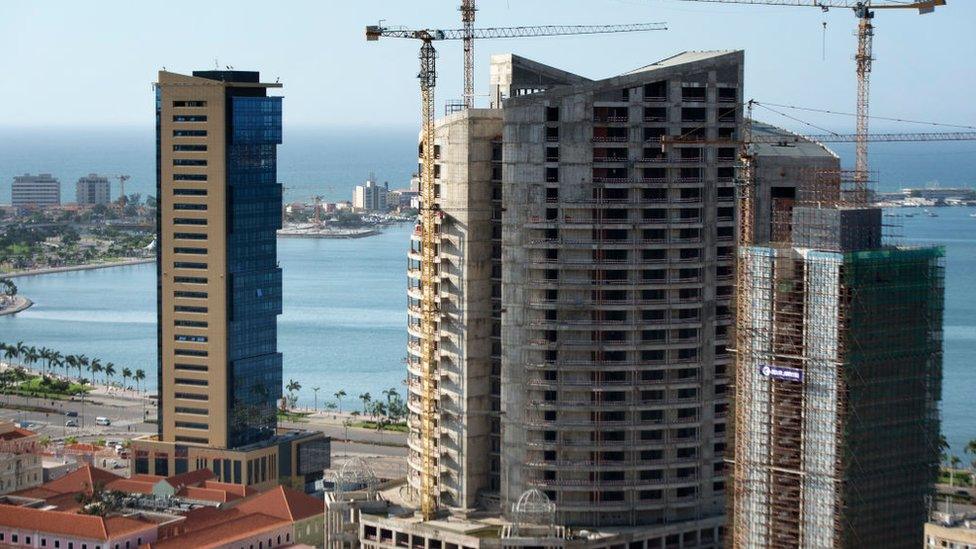
Angola's economy has boomed because of oil
But some observers have been quick to play down the idea of a Dos Santos dynasty with Isabel - derided, for years, as "The Princess" in Angola - filling her father's shoes.
"Isabel doesn't have a strong constituency in her favour inside the party. For now, the party is behind Lourenço, at least when it comes to the targeting of Isabel," said Ricardo Soares de Oliveira, an Oxford professor and expert on African politics.
"If he turns what is still a focused vendetta against the Dos Santos family into a systemic clean-up, the MPLA would not accept it and might even rediscover Dos Santos as the guy who enabled all of them to get rich. But there is no sign of this," the Oxford professor added.
"Dos Santos and Isabel remain deeply unpopular in the country and the party alike. I am not writing her off entirely but she is genuinely weakened by these ongoing revelations and her international standing is deteriorating fast."
With much of her fortune still thought to be intact outside Angola, Ms Dos Santos remains a formidable force.
If she were to seek the presidency - and in the interview, she stressed that her commercial battles were not necessarily best resolved by political manoeuvres - she would first need the law to change in Angola as she is currently ineligible to stand because her mother is Russian.
But those who have watched her remarkable business career, and her furious public assault on Angola's current political elites, agree that such an obstacle is unlikely to prove insurmountable.
- Published25 August 2017
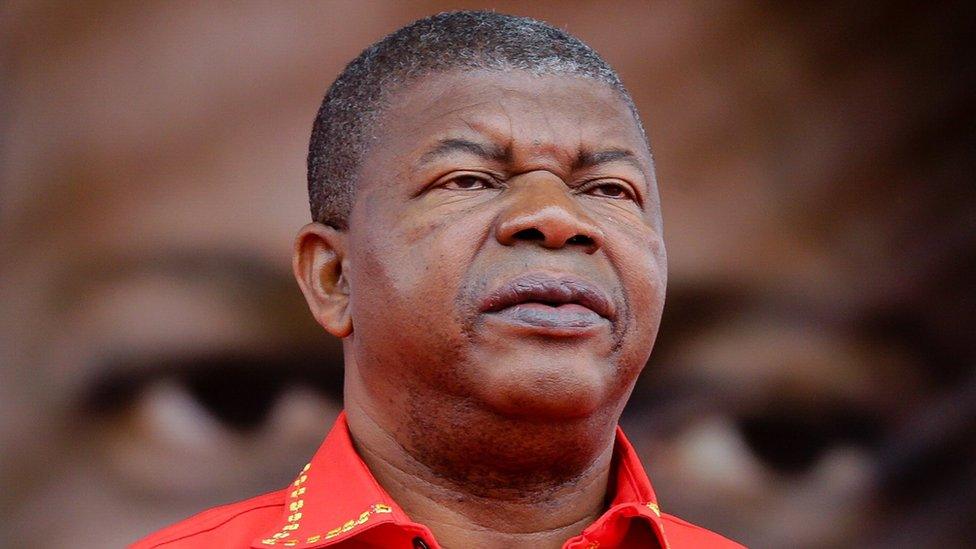
- Published7 November 2017
